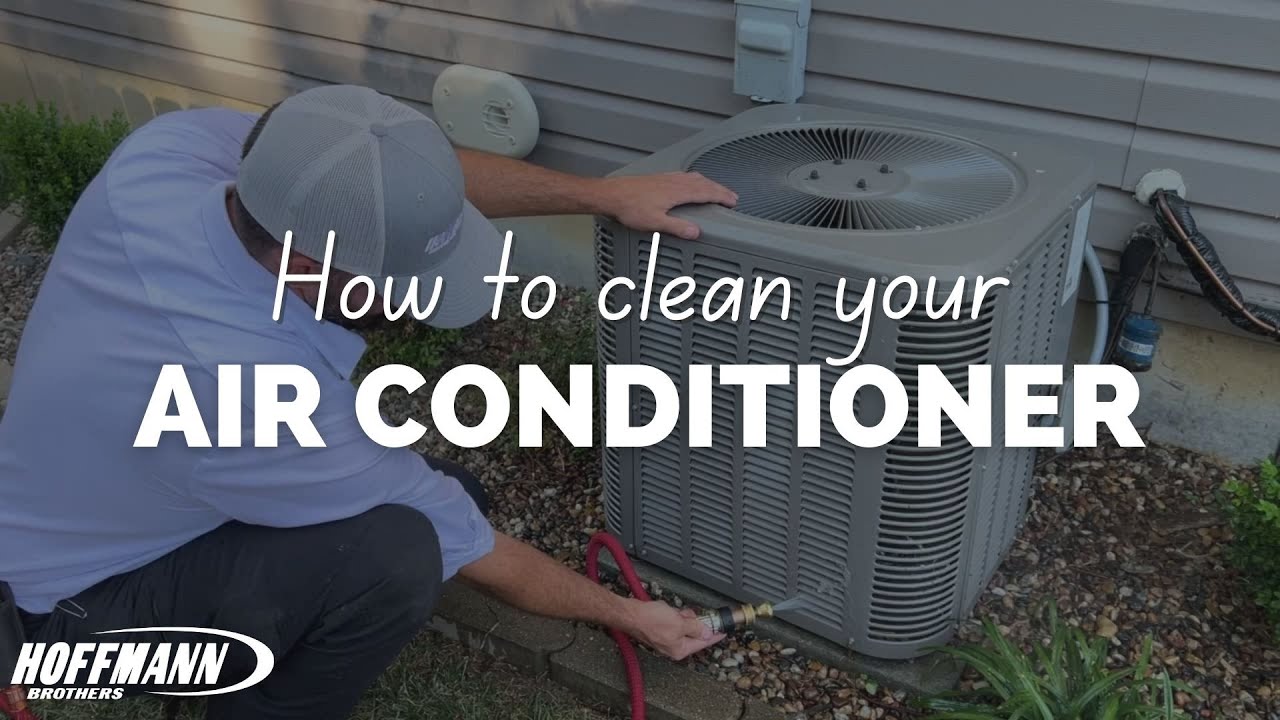Understanding Central AC Issues
Thermostat Settings Impact
When it comes to staying cool at home, the thermostat is your air conditioner’s best buddy. Cranking it too low when it’s unbearably hot outside, like upwards of 100 degrees, might sound appealing, but it can actually wear your AC unit out quicker and jack up those energy bills. Just picture your AC gasping for air.
The U.S. Department of Energy, those guys who seem to know a thing or two, reckon setting your indoor temp at 78 degrees when you’re home is the sweet spot during summer. If you’re out and about, 88 degrees should do the trick to keep the heat beast at bay—unless you’ve got furry pals waiting for you. Then, don’t go above 85 degrees (Mechanical Service Company).
Importance of Outdoor Unit
Let’s not forget the outdoor unit, your AC’s unsung hero. This chunky metal box, also known as the condenser, is a key player in keeping your space cool. It needs to breathe freely, so make sure it’s not getting overwhelmed by bushes or debris that could mess with its airflow (Hydes Air Conditioning).
Giving the outdoor unit some love with regular checkups and cleanings is just as crucial. Have it thoroughly inspected each year to ward off potential hiccups and scrape away any grime that clings on to it.
Knowing a bit about thermostat habits and outdoor unit upkeep can help you figure out why your central AC is running but not cooling the house. If you’re itching to learn more quirks about home appliances, check out our reads on why does dishwasher smell and why does refrigerator compressor click.
Maintenance for Efficient Cooling
Keeping your central air conditioning in top-notch shape isn’t just a good idea—it’s a necessity. This section explores why tending to your system every year and maintaining healthy airflow can save money and hassle.
Annual Maintenance Perks
Getting your AC checked annually isn’t just busywork; it’s about keeping cool without stressing your wallet or the system. One key aspect is catching breakdowns before they happen and boosting efficiency. When a pro gives the condenser unit a once-over and a good clean, it’s like giving your AC a mini-spa day so it can run smoothly.
Here’s why once-a-year check-ups are a smart move:
- Better Efficiency: A clean AC means an efficient AC. Without dust and debris, it cools your house smoothly. However, if filth cakes up the condenser coils, the system has to hustle overtime, burning more energy (Alpine Temperature Control).
- Longer Lifespan: Nip little problems in the bud to dodge wear and tear, keeping your AC running for years to come. Imagine the money saved by steering clear of pricey repairs or buying a new system (Alpine Temperature Control).
- Money in Your Pocket: Routine check-ups can catch minor quirks before they blow up into big troubles. This saves from steep repair bills or system overhauls.
For prime performance and efficiency, keep up with a few simple outdoor unit tips: get the coils clean, clear away junk around the unit, eyeball that fan, and pencil in a maintenance visit from a licensed HVAC pro (Alpine Temperature Control).
The Role of Good Airflow
Good airflow is the lifeblood of your central air conditioning. When it gets blocked, your system’s going to sweat buckets trying to cool your place, which means higher bills and possible breakdowns.
A few tips to keep airflow smooth:
- Fresh Filters: Swap or clean those filters on the regular to keep air moving and avoid clogs.
- Duct Check: Look over the ductwork for any sneaky blockades or leaks messing with the flow.
- Free Vents: Make sure sofas or other fixtures aren’t blocking vents and registers.
Shutting supply vents in not-used rooms may seem clever, but it actually messes with the system’s mojo, causing pressure issues. This can suck in outdoor air through cracks, dinging indoor air quality (Tevis Energy). Interested in more on this? Take a peek at our piece on the dangers of shutting vents.
By valuing regular check-ups and keeping the air flowing, folks can tackle the puzzle of [why the central AC is chugging along but not cooling] and keep things cool and comfy without a hitch.
Signs for AC Replacement
Knowing when to swap out your central air conditioner might seem a bit like guessing the weather. But spotting the clues for when it’s time can keep your home breezy and snug.
Age and Efficiency
Let’s talk old air conditioners—they’re like old cars, not as fuel-efficient as the latest models. Most air conditioners quit the game after about 15 years. If yours has hit the big 1-0 or beyond, the folks at Energy Star suggest you might wanna start shopping around (King Heating). A new setup, if you treat it right with regular checks, might stick around for 15 to 20 years.
Got a calculator handy? Try the “$5,000 rule.” Multiply the age by the repair cost. If the number’s over $5,000, don’t hustle to fix it—consider buying new.
| Age of AC (years) | Repair Cost ($) | $5,000 Rule Total | Replace? |
|---|---|---|---|
| 10 | 400 | 4,000 | No |
| 12 | 600 | 7,200 | Yes |
| 15 | 300 | 4,500 | No |
| 15 | 400 | 6,000 | Yes |
Also, upgrading to a new AC can make a noticeable difference in your electricity bill. Plus, there might be some nice tax perks thrown your way (King Heating).
R-22 Refrigerant Concerns
Using R-22 refrigerant in your air conditioner? That’s like having a gas-guzzler in today’s green world. It’s not just pricy; it’s also fading out of existence. Modern units use R410-A, which Mother Earth approves of (King Heating).
| Refrigerant Type | Environmental Impact | Production Status | Cost |
|---|---|---|---|
| R-22 (Freon) | Bad for the planet | Stopped | Expensive |
| R410-A | Earth-friendly | Still going strong | Reasonable |
Switching to an AC that uses R410-A is a win-win—it helps the planet and keeps you up-to-date with eco standards.
Keeping an eye on these indicators ensures you’re not caught off guard with an AC that blows hot air or refuses to work. For more handy home fix advice, check out articles on why central AC is running but not cooling house, why clothes dryer leak water, or why dyson humidifier not working.
Risks of Closing Vents
Shutting air vents at home might seem like a quick fix to control room temperatures, but it can actually harm your HVAC system. Let’s break down the trouble it might cause:
Trouble for Your HVAC System
Closing vents in certain rooms cranks up the pressure inside your HVAC system. This extra pressure could spell trouble for parts like the blower motor and compressor. The strain can wear them out faster, making your system age too soon. Plus, that pressure might lead to leaks in the ductwork, meaning your system works harder without much payoff.
When your HVAC system has to push against this added pressure to keep you comfy, it starts guzzling energy like a teenager with a bag of chips. Your utility bills might leave you wondering who left the fridge open. Check out more ways to pamper your HVAC by reading effective central AC troubleshooting.
Air Pressure Problems
Another headache: air pressure. Some folks think shutting vents reroutes air to other rooms. Instead, it builds up pressure in the ducts, which isn’t as helpful as it sounds.
| Stuff to Consider | What It Causes |
|---|---|
| Bump in Air Pressure | Stress on blower motor and compressor |
| Airflow Bottleneck | Possible system freeze-over |
| Leaky Ducts | Less effective and wasteful |
Squeezing the airflow jacks up the static pressure, causing the blower motor to drag its feet. Less airflow means stuffy rooms and your system huffing and puffing without much oomph. In bad cases, restricted airflow might freeze up your HVAC, wrecking parts like the compressor.
To keep your home cool and your bills chill, make sure you’re getting good airflow. Get detailed tips on keeping things breezy by visiting proper ventilation practices.
Understanding these snags helps homeowners keep their HVACs humming smoothly. For more home wisdom, check out why dryers get loud and why freezers hum like the Bee Gees.
Tips for Optimizing Cooling System
Keeping your central AC chugging like it should is all about regular upkeep and smart habits. Let’s dive into some nifty tips to keep your AC in top shape.
Essential Outdoor Unit Maintenance
Spend some time on your outdoor AC unit, and it’ll return the favor with top performance and a longer life. If you ignore it, dirt and gunk start to build up, blocking airflow and making it hard for your AC to shed heat! Here’s how to keep it running smoothly:
Key maintenance tasks include:
- Regular Cleaning: Sweep away the grime. Clean those condenser coils, too, so air moves like it should.
- Clearing the Surrounding Area: Give the unit some breathing space by removing any junk around it.
- Inspecting the Fan: Take a good look—make sure the fan isn’t busted or half-buried under debris.
- Checking for Blockages: Catch and clear any clogs in the coils before they become a problem.
- Scheduled Professional Maintenance: Once a year, let a pro HVAC tech give your system the once-over.
| Maintenance Task | Frequency |
|---|---|
| General Cleaning | Monthly |
| Coil Cleaning | Annually |
| Clearing Surrounding Area | Monthly |
| Inspecting the Fan | Twice a year |
| Professional Maintenance | Annually |
Keeping up with this list doesn’t just help your AC run better—it wards off costly repairs and replacements down the road.
Proper Ventilation Practices
Proper ventilation isn’t just another box to tick—it’s a game-changer for your AC’s efficiency and your energy bill. Here’s what you need to do:
- Keep Vents Unobstructed: Make sure your vents and registers aren’t hiding behind the couch or curtains.
- Use Ceiling Fans: Get those ceiling fans spinning to help stir up the air, keeping things comfy without overworking your AC.
- Close Windows and Doors: One of those “duh” tips—keep windows and doors shut tight when the AC’s on to trap the coolness.
- Maintain Air Filters: Regularly swap out or clean air filters to keep the air flowing and the AC happy.
- Zone Cooling: If you can, go for zone cooling—it focuses the cold air where you need it most.
By sticking to these habits, your central AC will run like a dream, keeping your home cool and comfy. And if you’re interested, check out more practical advice on other pesky home appliance issues, like why your clothes dryer leaks water or what’s up when the dishwasher hums but doesn’t get water.

